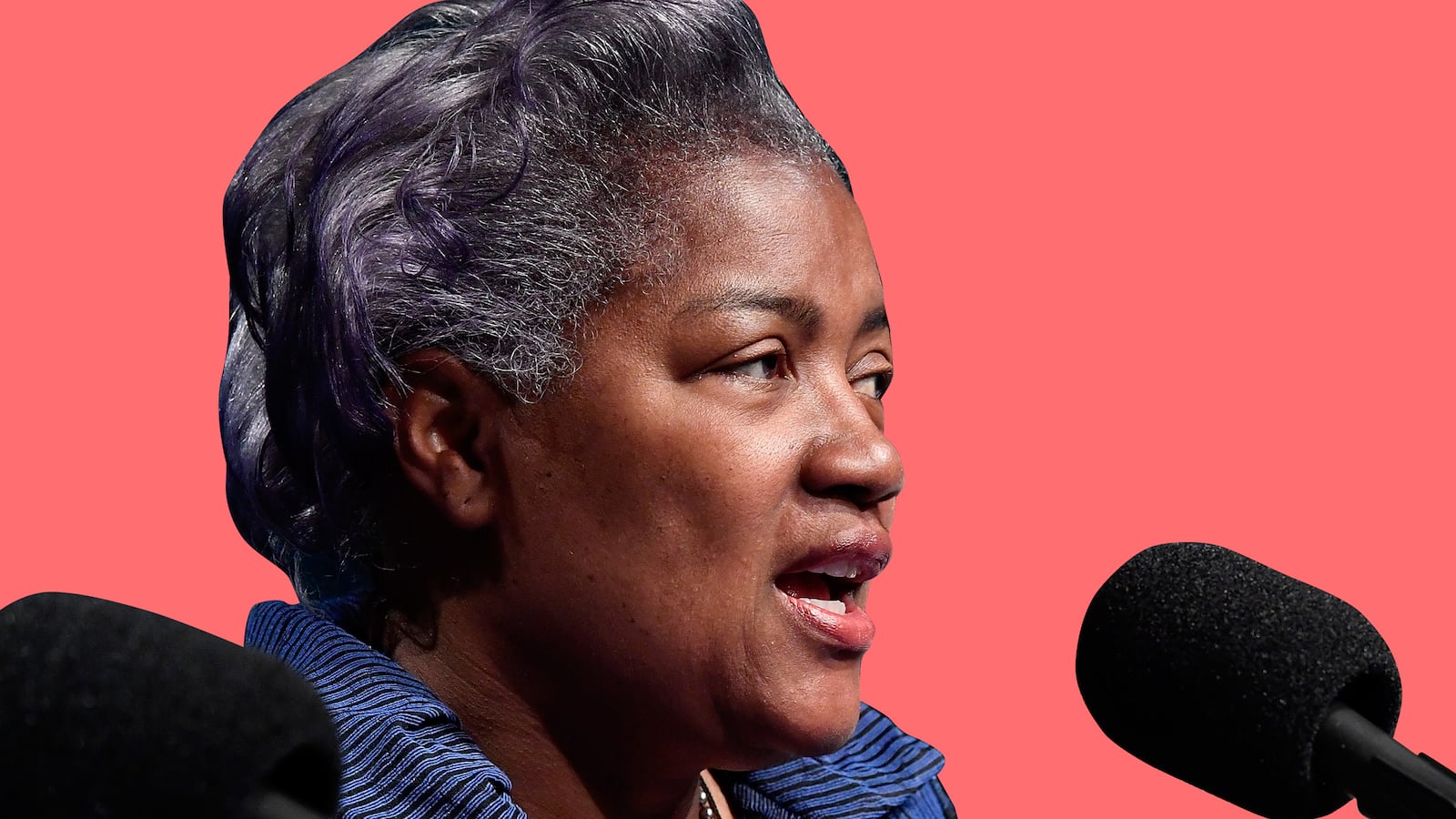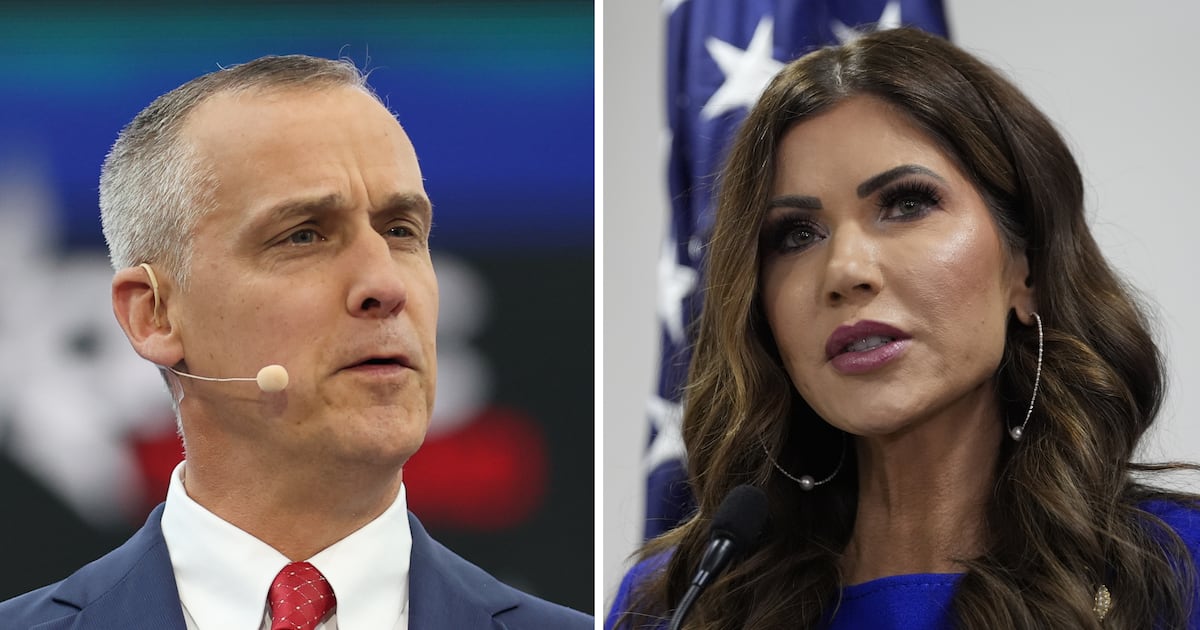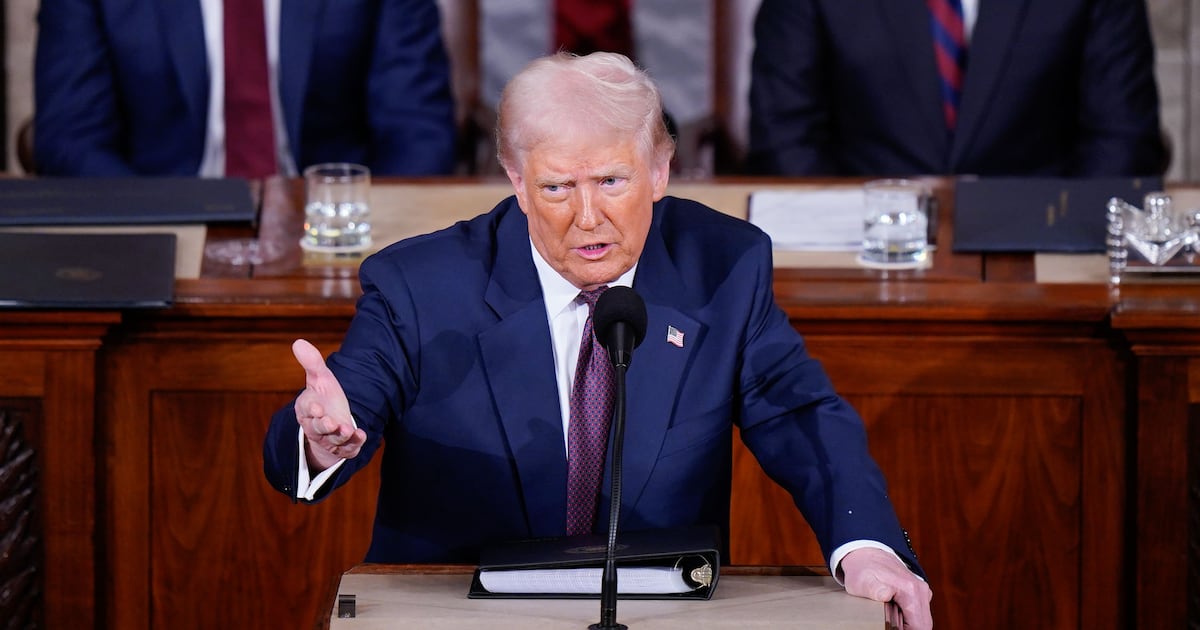Donna Brazile may be burning the village in order to save it.
What else to take away from the former interim chair of the Democratic National Committee and longtime party operative in dropping the bombshell news this week about a fundraising agreement between Hillary Clinton and the DNC? It’s part of a larger story that focuses on the Russian hacking of the Democratic campaign and the threat to the democratic process, but it’s the “Clinton takeover of the DNC” that took over the narrative this week.
Brazile’s revelation: that Hillary Clinton in September of 2015 entered into a joint fundraising agreement with the DNC that allowed the candidate to pay down the party’s considerable debt in exchange for exercising control of some hiring decisions was seized upon by some supporters of Bernie Sanders as proof that the primary was indeed “rigged” against him. Predictably, Donald Trump joined in, tweeting in much the same way he — in tandem with Russian bot farms — did during the campaign, that the system is shot through with Clintonian criminality against which Bernie never stood a chance.
Caution has rarely been the watchword when it comes to any story containing the magic words: Hillary Clinton. The “Clinton rules” dictate that a presumption of scandal and wrongdoing must infuse every tale in which she is a character. But Brazile’s bombshell was a much greater indictment of a Clinton loyalist, Florida Congresswoman Debbie Wasserman Schultz, who was at the helm of the DNC before she was felled in the Wikileaks avalanche at the start of last year’s Democratic National Convention.
As Brazile tells it, the DNC was dead broke by the time Clinton cut the deal to retire the organization’s debts in 2015. Indeed, in the excerpt from her book, Hacks: The Inside Story of the Break-ins and Breakdowns that Put Donald Trump in the White House, Brazile writes that by the time Clinton set the party’s finances right and “put it on a starvation diet,” the DNC “had become dependent on her campaign for survival, for which she expected to wield control of its operations.”
Brazile blames some of the mess on former president Barack Obama, who many recall was less attentive to the DNC than to his own rival group, Organizing for America — a sore point for some Democratic operatives. And when Wasserman-Schultz, a late convert to the Obama cause in 2008 took over, named by Obama as part of the healing process from the brutal Obama-Clinton primaries, the party’s finances hardly recovered.
Wasserman-Schultz was “not a good fundraiser,” according to Brazile, who writes that the 2012 Obama re-election campaign had left the DNC $24 million in the red, including bank and vendor debt that was not scheduled to be paid off until 2016. The DNC, in addition to the party’s rule-making body, serves as the repository of the “coordinated campaign” between the nominee and the state parties, and that kind of debt is not unusual after a presidential campaign. After the 2008 election, a key bone of contention in the delicate dance to bring the Clintons into the Obama fold was the question of how much help he would offer in retiring her massive campaign debt.
But the 2016 election was different. Clinton had all-but cleared the field after 2012, with a tacit promise of support from the Obamas that drove all comers, including Joe Biden and presumably Elizabeth Warren out of the ring. By the summer of 2015 there was little doubt Clinton would have the nomination and it never occurred to anyone that a rival could take it from her —not Martin O’Malley, the youth-centric former Maryland governor, and certainly not a cranky independent Senator from Vermont who was using the party as a vehicle to advance his long-held ideas, but who had no interest in building up the Democratic Party, including by fundraising for it (or registering Democratic voters.)
Indeed, Sanders eventually signed a joint fundraising agreement with the DNC, just like Clinton did — a possibility Clinton’s fundraising agreement always presumed. But he didn’t use it. He didn’t need to. Sanders was raising so much money in small dollar donations that by the spring of 2016 he had exceeded Clinton’s massive fundraising haul.
As for “rigging,” Clinton’s agreement was for money that could only be spent in the general election. It would have no impact on the primaries. Nor could the DNC, which could barely protect its own email servers, rig an election in the first place. The states set the primary schedules, not the DNC, with the exception of the party’s designation of the “go-first” states through its power to award delegates to the convention. And states and state parties decide whether to hold state taxpayer-funded primaries, which Clinton dominated in 2016, or party-funded caucuses, the smaller contests that advantaged Sanders (and before him, Obama.)
The DNC’s power doesn’t extend to the kind of interventions the Sanders faithful imagine took place as a result of Clinton’s fundraising. Even setting the debate schedule had to happen in tandem with the major television and cable networks and later with the RNC. The DNC couldn’t simply make the designation on its own. And given Sanders’ popularity during the primary, and the near-universal positive coverage he received (a Harvard Shorenstein Center study revealed that Sanders’ media coverage was the most positive of any candidate the campaign, while Clinton’s was the most negative), and the Wikileaks dumps that all-but crippled the Clinton campaign’s messaging, it’s hard to argue that even “burying” the primary debates on weekends harmed Sanders’ campaign. In the end, Sanders failed to get the nomination for the most ordinary of reasons: Hillary Clinton got more votes.
Still, Brazile’s book excerpt begins with her quest to discover, upon taking the helm of the DNC, whether the process had indeed been stacked against Sanders, something Senator Elizabeth Warren now apparently believes as well (if she runs for president, she has helped herself with the Sanders supporters who once shunned her for not endorsing him in the Massachusetts primary). But the chapter concludes, not with a finding of rigging — something Brazile on Twitter Friday denied she said happened at all — but of what Brazile deemed to be unethical and inept operation of the Democratic Party’s central committee, which effectively allowed one candidate to become its lender before she became its nominee. Brazile doesn’t even criticize Clinton for coming to the party’s financial rescue. They clearly needed the money. But she does fault Wasserman-Schultz for cutting the deal without consulting the DNC board. Others close to Brazile, who will give her first interview on the book Sunday morning on ABC, say she also took issue with her predecessor’s free spending ways, and failure to manage the party’s balance sheet responsibly.
Beyond that, few would argue that having bailed out the DNC, Clinton shouldn’t want to call some shots. Clinton would have inherited full control of the DNC anyway once she got the nomination, as Sanders would have had he ultimately bested her. And it should be no surprise that the 400 or so die-hard Democrats of the DNC would feel put off by a candidate seeming to use the party for his own advancement while refusing the join.
Still, the DNC has long been packed with Clintonistas, which again is no surprise, given how many Democrats came to Washington with Bill Clinton’s election in 1992 (The party’s leadership tends to flow from the most recent Democratic president, which is why Obama’s man, Tom Perez, is now running the show.) The Clintons shaped the party for a generation before Obama came along. And the party has a history of giving Clinton rivals the cold shoulder, including Obama in 2008. Because of that, and having permitted Sanders to run, the onus was on the DNC to show even greater equanimity — something made harder when the party wound up in court with Sanders late in 2015 after cutting off his access to the central voter files following a breach of the Clinton campaign’s data by Sanders staffers.
It was all one big recipe for unease in an organization not known for taking chances or welcoming outsiders.
Brazile, who cut her teeth in politics during Jesse Jackson’s outsider campaign in 1984, seems to be firing a shot across that bow. Jackson’s campaign, like Sanders’ caused heartburn inside the party as he barnstormed across southern states, racking up delegates that forced a reluctant Democratic leadership to reckon with him. He would do so again in 1988, after which emerging leaders like Bill Clinton and Al Gore recognized the worth of some of Jackson’s best operatives; Brazile, Minyon Moore, Leah Daughtry, Yolanda Caraway and Tina Flournoy — a group nicknamed “the colored girls.” They soon cycled through other presidential campaigns, culminating in Brazile helming Al Gore’s 2000 presidential bid — the first woman — and the first black woman — to run a presidential campaign.
Brazile may be an insider, but she maintains the rebel spirit of that 1984 campaign. She was sympathetic to Sanders, despite a controversy over providing extra help to Clinton before a CNN debate, and was clearly deeply critical of the way the party was operating. During the convention, Brazile was viewed as a healing presence in a party that remains torn between the Sandernistas and rank and file Democrats.
Predictably, the Brazile revelations have set off a new round of bloodletting between the two camps. Even a year after the general election, the party seems acutely unable to stop fighting the 2016 primary, with one side seeming determined to alter the rules to pave the way for another Sanders run (more caucuses, forcing state parties to switch to open primaries so independents can participate, and a shift away from so-called “identity politics”) and another battling on behalf of the party’s most loyal base: black women.
The Democratic Party seems adrift, despite the singular threat of Donald Trump, the lockstep march of his party into the neo-confederate abyss, as demonstrated by onetime New Jersey Reaganite Ed Gillspie in Virginia, and the dogged determination of Paul Ryan, Mitch McConnell and their ilk to unwind the New Deal and Great Society safety nets and clean out the treasury to hand the contents of the federal treasury over to the super-rich. If Gillespie wins next Tuesday, it will likely set off a national wave of Trumpist candidates in 2018, and could put the redistricting of key swing states like Virginia in Bannonite hands in 2020.
Yet faced with that potential crisis, Democrats cannot seem to decide whether to promote the black candidate for Virginia lieutenant governor or to hide him in the curtains, in the vain hope that the white suburban housewife who voted for Trump, pussy-grabbing and all, because they too want a wall, will somehow switch sides.
They have made no visible commitment to the unsexy but critical work of massive voter registration, upon which the civil rights movement was built. The party has mostly left it to journalists, lawyers and individual politicians to do the work of defending the Voting Rights Act, paid for with the blood of martyrs from Medgar Evers to Dr. King to a martyred President Kennedy; a landmark law enacted through the steely determination of another Democratic president, Lyndon Johnson.
The Democratic Party has no discernable message, no recognizable plan and no real response to Trump’s serial rending of basic decency and honor. While individual party members soar, particularly in their dogged investigation of Russiagate, the party writ large has yet to find consensus on whether to pledge to impeach this president should they gain power, or to somehow make common cause with a man many Americans believe is quite literally descending into madness.
If the kind of bad management Brazile exposed in her book is still de rigueur for the DNC, best to fix it now, before 2018 becomes the graveyard of a party that already controls almost no levers of power in a country where Democrats have outnumbered Republicans for more than 70 years.
We face an unprecedented crisis in America. Millions of our fellow citizens are flirting with fascism in the guise of nationalism; xenophobic racism in the guise of national security, and authoritarianism masquerading as populism. One party has utterly capitulated to this rot, handing over the legacy of Republicanism to the crazies without so much as a fight, all in exchange for the promise of tax cuts and deregulation. America needs the other party to get itself in order.
One could choose to view Brazile’s bombshell as a further destabilization of the party at a delicate time, or as a warning. Her revelations could be taken an excuse for the far left to abandon the party on the eve of two important gubernatorial races, or as an incentive for those who care about the party’s future, and the country’s, to right the ship.
The barbarians are at the gate and the gate has fallen. Perhaps it is time to torch the huts and seek higher ground for the fight.






